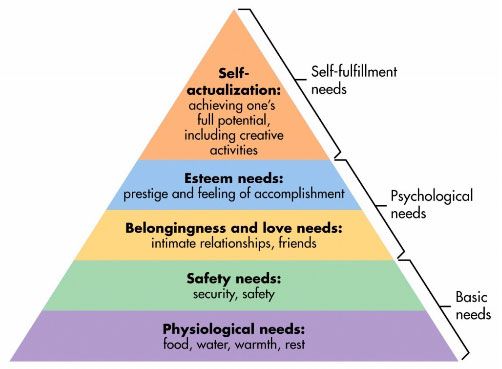
“There’s nothing special about you and your business.” This was said by a business strategist to me and a room full of coaches a few years ago. Hold on. You can’t mean us, we all thought. We are special. We each bring something unique into the world.
While that last part is true, each of us believed that there was something unique about our business, something that required a different approach. Sure, the standard methods worked for others, but we believed we were different. Apparently not. And that attitude did not serve us well.
When you think you’re different, you make less progress. You’re looking for a magic formula, made just for you. Your perceived uniqueness becomes the justification for not doing what feels so hard. You tend to complain more, too, and to feel alone in your struggle.
This applies to raising children. “We’re different. We’re special. Our problems are unique. You can’t understand what we’re going through.” More often than not, that’s not true. While the details of your challenges may differ, every family experiences them, and the solutions are similar, too. You have more in common than you can imagine. In my work with parents, we are always coming back to the same themes. The solutions tend to be rooted in basic needs, desires, values, skills and resources.
Let’s detour for a minute into the area of needs. Human needs are the same, across the board. Psychologist Abraham Maslow detailed them in his pioneering work, the Hierarchy of Needs, in 1943. It is as true today as it was then, as it has always been.
The five areas of need are arranged in a pyramid. The base is Physiological Needs, followed by Safety Needs, Belonging and Love, Esteem, and Self-Actualization. The first four are called ‘deficiency needs’ because they motivate people when those needs are not met (i.e. The longer you go without food, the hungrier you become. When you are starving, self-esteem and self-actualization aren’t even on your radar.) The lower levels must be satisfied in order to reach the higher levels.

These needs (and how well or poorly they’ve been satisfied) drive your behavior, your children’s behavior and all human behavior. In this sense, we are not special at all.
Put a random group of parents in a room. I guarantee that you will have similar answers to most of these questions. You are not unique… and you are not alone. Take comfort and build a network of support and compassion. Stay connected through your shared experiences.
In his groundbreaking book, The Body Keeps the Score, Dr. Bessel Van Der Kolk, professor of psychiatry, brain researcher, and founder and director of the Trauma Center in Brookline, Massachusetts, offers this about connection:
“Our culture teaches us to focus on personal uniqueness, but at a deeper level we barely exist as individual organisms. Our brains are built to help us function as members of a tribe. We are part of that tribe even when we are by ourselves, whether listening to music (that other people created), watching a basketball game on television (our own muscles tensing as the players run and jump), or preparing a spreadsheet for a sales meeting (anticipating the boss’s reactions). Most of our energy is devoted to connecting with others.
“If we look beyond the list of specific symptoms that entail formal psychiatric diagnoses, we find that almost all mental suffering involves either trouble in creating workable and satisfying relationships or difficulties in regulating arousal (as in the case of habitually becoming enraged, shut down, overexcited, or disorganized).”
‘Nothing special’ means you have a lot in common.
You’re not alone.
What do parents have in common? Consider these questions and perspectives:
* What do your children really need (safety, affection, support, intervention, things, consequences)?
* What kind of people do you want them to be 15-20 years down the road?
* What do you worry about?
* Think about what you bring to parenting from your own childhood and life experiences.
* What beliefs and fears influence your relationships?
* What are your hopes and dreams for your children?
As for your children, this idea that they are special works against them. They start to expect special treatment from teachers, professors and employers; to believe that exceptions should be made; that the rules don’t apply to them; and to feel entitled.
That kind of ‘feeling special’ creates a divide with other people in their life. This is the opposite of the connection that every person craves. (Remember that connection is in the third level of Maslow’s Hierarchy, Belonging and Love, and is the first of the psychological needs.) When children feel separate, it all starts to fall apart.
Encourage them? Yes. Acknowledge their positive qualities? Yes. Point out where you see them excel? Yes. Tell them they are special (often interpreted as better)? No. It’s all in what you focus on and how you express it.
When there’s ‘nothing special’ about you, you are connected to all of humanity. Whether in the family, the classroom or the boardroom, it all works better that way.
